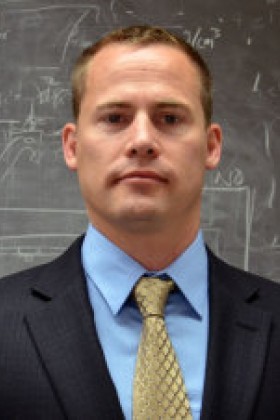Join us on April 29 at 3:30 p.m. for this Sustainable Energy Seminar presentation by Mark H. Anderson, Associate Professor of Mechanical Engineering
Abstract
Energy demand and impact to the environment are seemingly at odds and there is a strong push to make our energy production and usage more sustainable. This can be done through several mechanisms, one of which is increasing the efficiency of electrical power production by making use of advances in technologies, materials, and methods. Most (80%) of our utility-scale electrical energy production is generated by converting heat into electricity, and this conversion process typically occurs at fairly low thermodynamic efficiencies (~34%). This means that we are rejecting approximately 67% of this heat energy to the atmosphere.
The adaptation of different power cycles (e.g. sCO2 Brayton) through technological advances, coupled with the ability to handle heat generated at higher temperatures, has the potential to boost the efficiency of energy conversion. This can have a direct linear relationship to the amount of heat rejected and thermal energy needed to be created (fuel that needs to be used). A large fraction (~13%) of the total 67.3 Quads of rejected heat energy in the US comes from industrial processes, and a significant fraction of this is rejected at temperatures sufficient to be further used for electricity or other applications. The ability to leverage some of this higher-temperature heat by making use of advanced power cycles can reduce the overall amount of heat needed to be generated.

Lastly, the shift from thermal energy generation sources to other technologies, such as wind and PV solar, which reject far less thermal energy, can come at a price of reliability. Maintaining the reliability of the electric grid that our society demands requires the implementation of energy storage techniques. While significant research is going into battery storage, there will be a need for other storage mechanisms. Additionally, the fact that many microgrids require heat sources for building climate control, and that industrial processes require heat, highlights the need for thermal storage. This lecture will discuss research and development in the above different areas to improve the sustainability of our electrical power generation and industrial heat production to lessen the impact on the environment.
